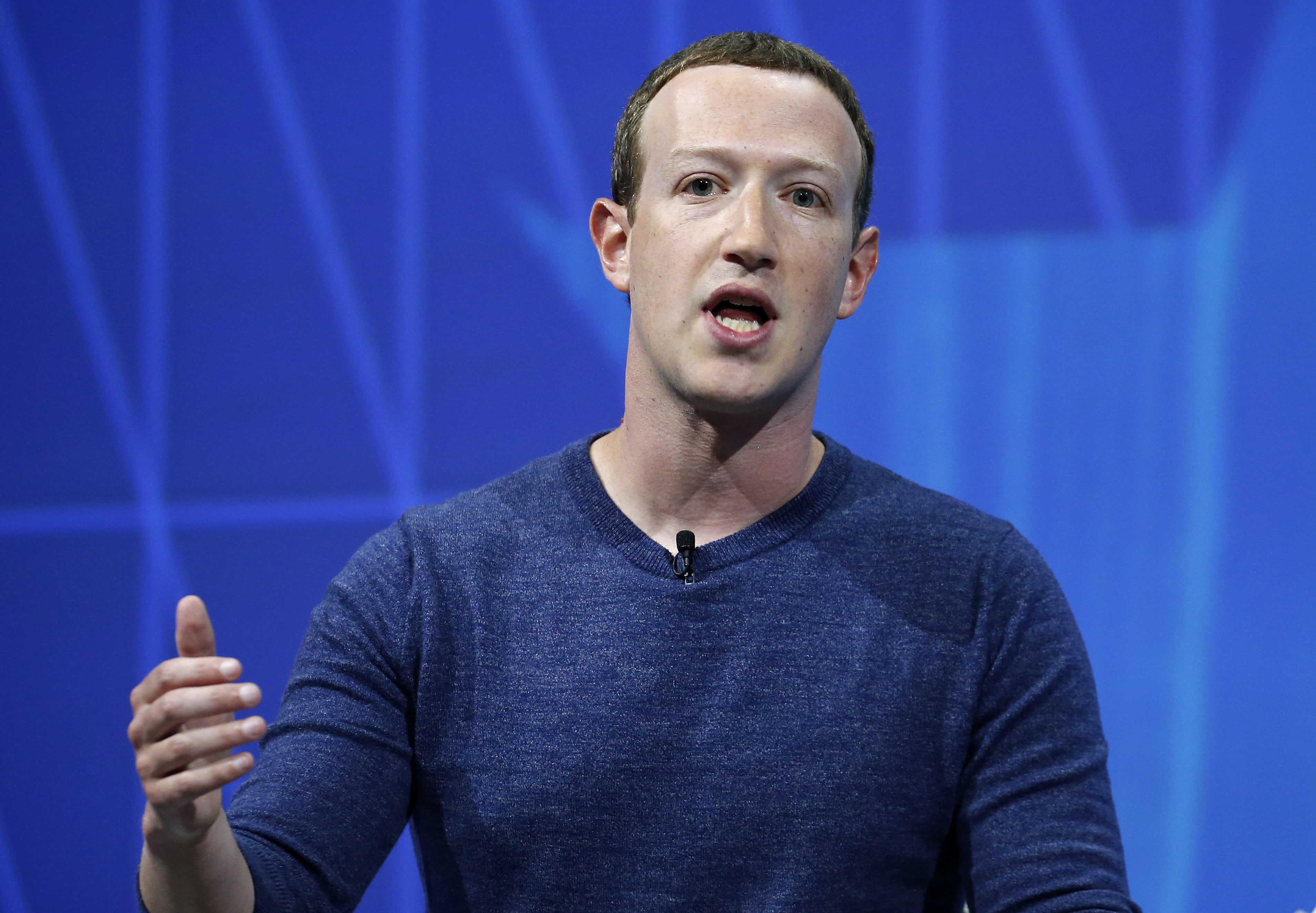Facebook founder and CEO Mark Zuckerberg.
Chesnot | Getty Images
Facebook announced Wednesday that it is launching initiatives to support Black entrepreneurs.
It’s dedicating $40 million from its $100 million small business grant program to 10,000 Black-owned businesses in the U.S. Grants include $2,500 in cash and a $1,500 Facebook ad credit. The company is also updating its Businesses Nearby platform announced in May, to surface Black-owned businesses within the tool so people can discover them more easily.
To be eligible, companies must be majority Black-owned for-profit enterprises with up to 50 employees that have been in business for at least one year. They must have experienced challenges from Covid-19 and plan to use the funds to support their business and community.
Facebook’s strategic partners, Accenture and the Association for Enterprise Opportunity, will judge applicants and select which businesses will receive grant funds.
This follows Facebook’s other efforts to help this hard-hit sector. In June, the company earmarked $200 million from its $1.1 billion supplier diversity program to Black-owned businesses through the end of 2021.
Hardest-hit sector on Main Street
Forty-one percent of the 1.1 million black-owned businesses on Main Street shut down between February and April as the coronavirus pandemic swept the country. That’s twice the failure rate of nonminority businesses, according to a study by the Federal Reserve Bank of New York.
These businesses often lack access to bank credit and other forms of financing, making it harder to survive financial emergencies and they did not get a sizable share of Paycheck Protection Program loan relief when it was rolled out. Many are micro-enterprises, providing a livelihood to a sole proprietor or a few employees at most. Profit margins are thin, while owners’ financial savings are often meager, making them vulnerable to sudden downturns. Black-owned businesses are heavily concentrated in cities that have been hardest hit by the virus and they entered the pandemic with weaker financial conditions, the Fed study concluded.
“We realize critical support for Black entrepreneurs is needed now,” says Maxine Williams, Facebook’s global chief diversity officer. “Helping these businesses stay alive in thrive is a way to promote economic justice and equality.”
Up until now, Facebook hasn’t asked business owners to identify themselves by race. Currently, 180 million small business owners globally use the free tools the company provides, and 9 million advertise on the site. “Many people don’t even know what businesses in their community are run by Black entrepreneurs,” Williams says. “This will provide a way for consumers to find and support them.”
While this new tool can help businesses get discovered, Facebook says it will continue to protect privacy and keep people and businesses safe, so business page admins can choose to skip, edit or remove diverse-owned business information at any time and the diverse category labeling won’t be shown publicly on a business’ page. Diverse business categories on Facebook will be associated with business pages, not people, and won’t make inferences about peoples’ demographics, including gender, race and ethnicity, if they manage or interact with diverse business pages.
The multi-facted approach is Facebook’s attempt to provide the greatest impact on an entrepreneurial ecosystem that has been collapsing. Even before the pandemic, a third of small Black-owned firms were considered at risk according to the Federal Reserve. That means they only met one of three indicators of financial health: profitability, high credit scores, and enough funds to run their business without the need to use personal funds or external financing.
That is why Facebook’s grant program may prove a lifeline to many entrepreneurs who are pivoting and trying to take their businesses online in this new digital economy.
Facebook has faced recent questions about its own lack of diversity within its employee base, as well as a relationship with the small business community that has included some tension in recent years. As the recent ad boycott of Facebook by large brands, the Stop the Hate for Profit campaign, roiled the company, its top executives including CEO Mark Zuckerberg and COO Sheryl Sandberg have focused more on the extent to which small business is a core advertising focus for it. Zuckerberg said on its recent earnings call, “Now some also seem to wrongly assume that our business is dependent on a few large advertisers. Now, while we value every single one of the businesses that use our platforms, the biggest part of our business is serving small businesses.”
Other initiatives
Earlier this month, Facebook began accepting applications for its $25 million grant program to support the next generation of Black creators on Facebook and Instagram in the U.S. The program will provide emerging Black creators with access to funding, education, development resources and community activities to help them grow their community and build a business across our apps.
According to Williams, Facebook’s initiatives were born from ideas employees and suppliers suggested would help Black entrepreneurs during the pandemic. For many to survive, these businesses will have to pivot online as consumers count on the digital economy for their products and services.
Since the pandemic, the company has ramped up programs to support Main Street. In March, Facebook CEO Mark Zuckerberg launched Facebook Shops, which makes it easier for companies to list their products on Facebook and Instagram.
Facebook Shops, which is free, lets businesses set up product listings on their Facebook Page, Instagram profile, Stories or in ads. Facebook Shops lets them upload their catalogs once to make them accessible across Facebook’s various apps.
At a recent CNBC Small Business Playbook virtual event, Facebook COO Sheryl Sandberg noted the unique challenges minorities, especially Black women, have faced during the crisis. “We want to give these people the best shot to continue to grow and serve their local communities,” she said.
